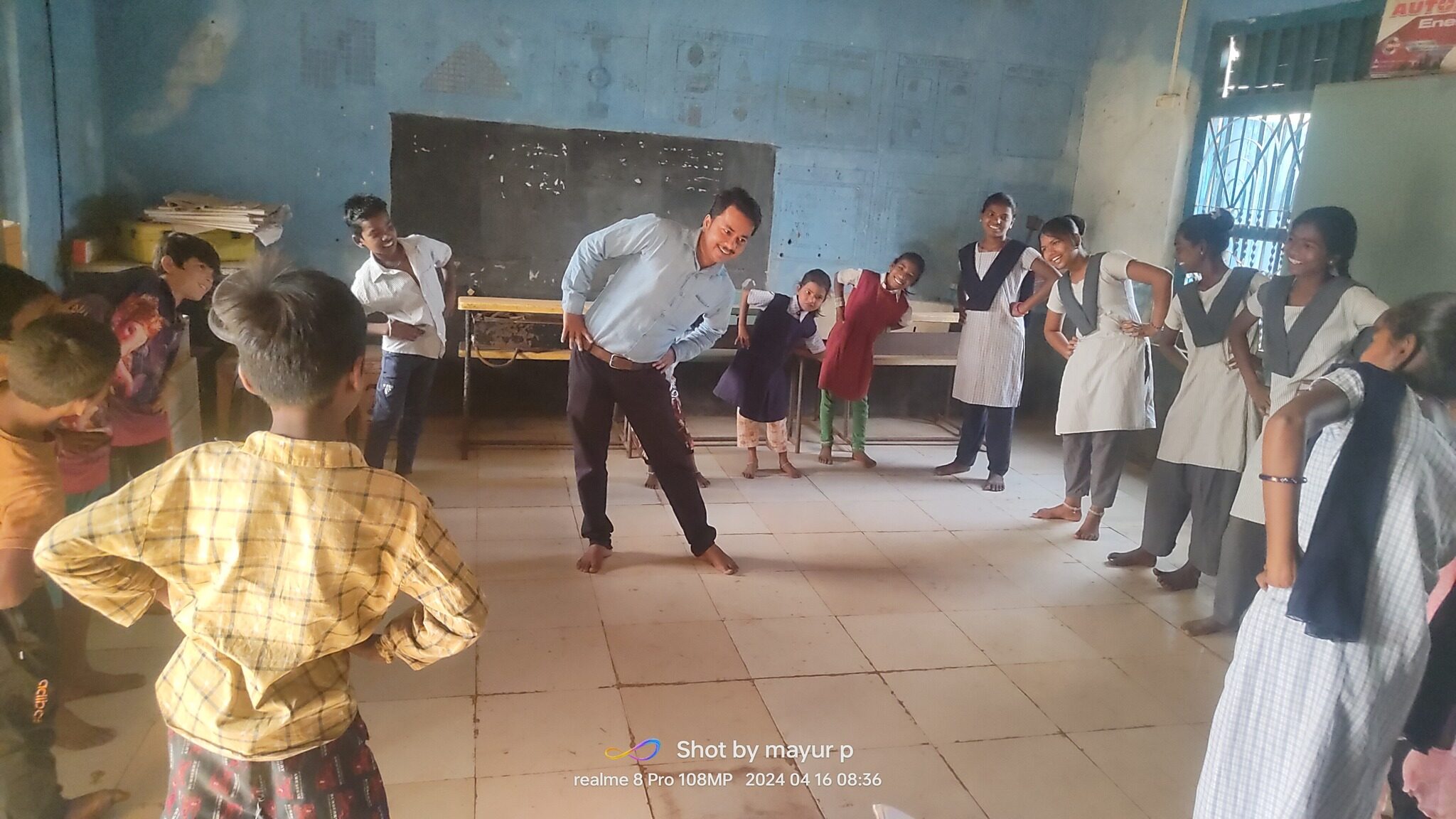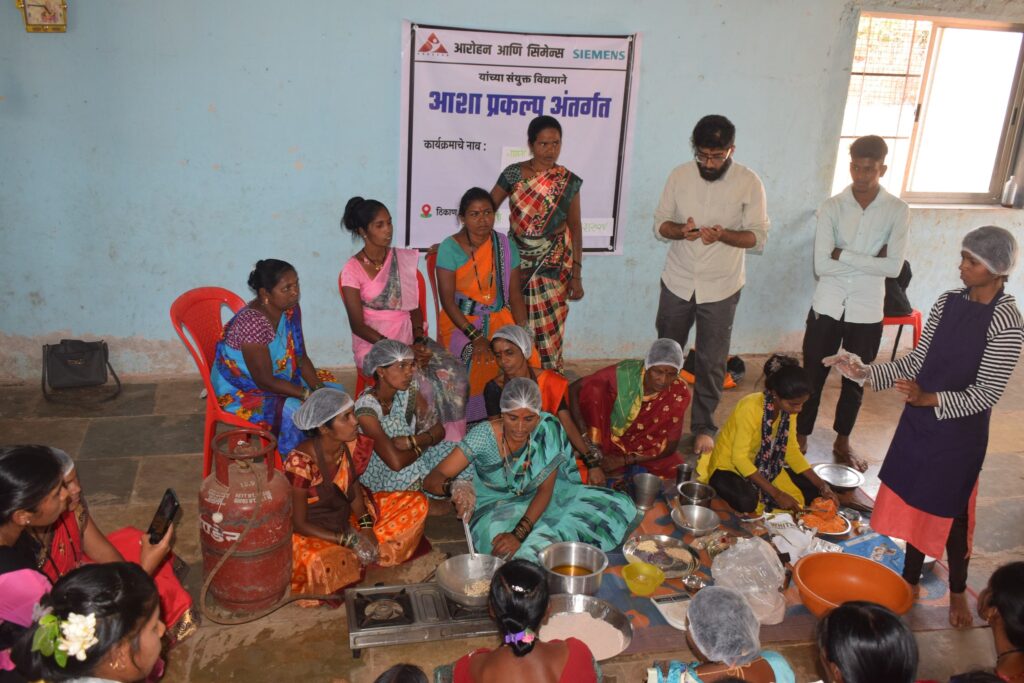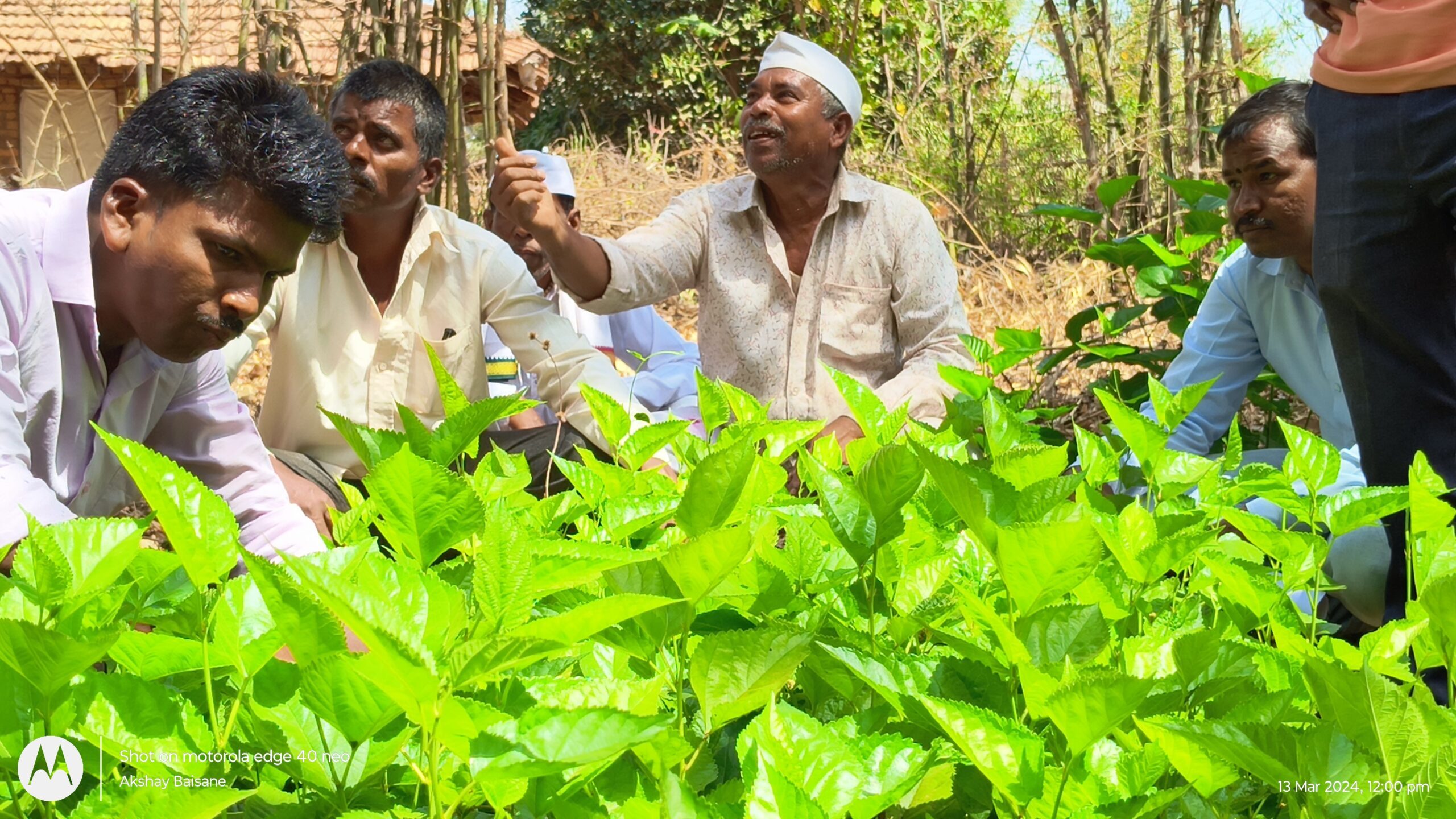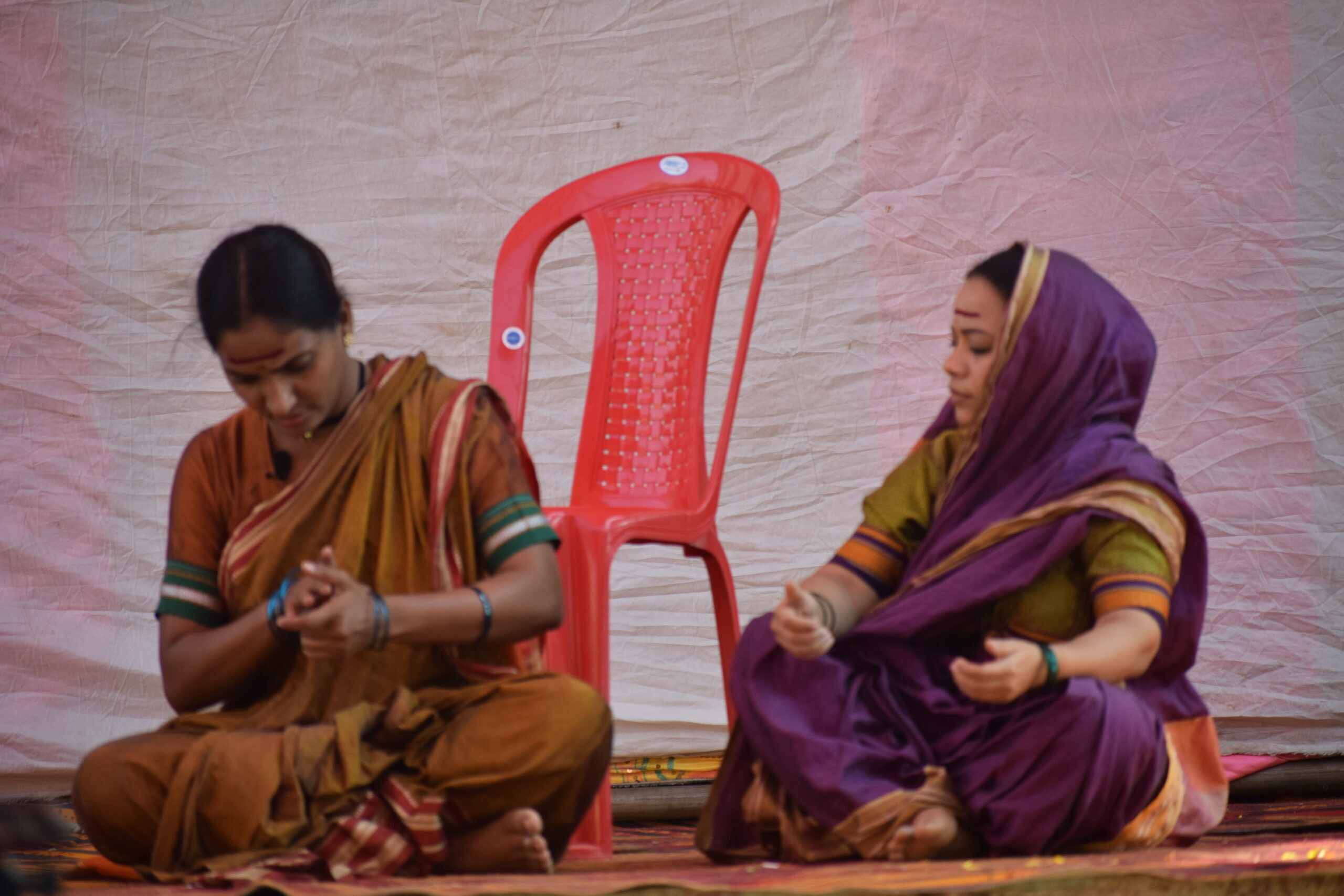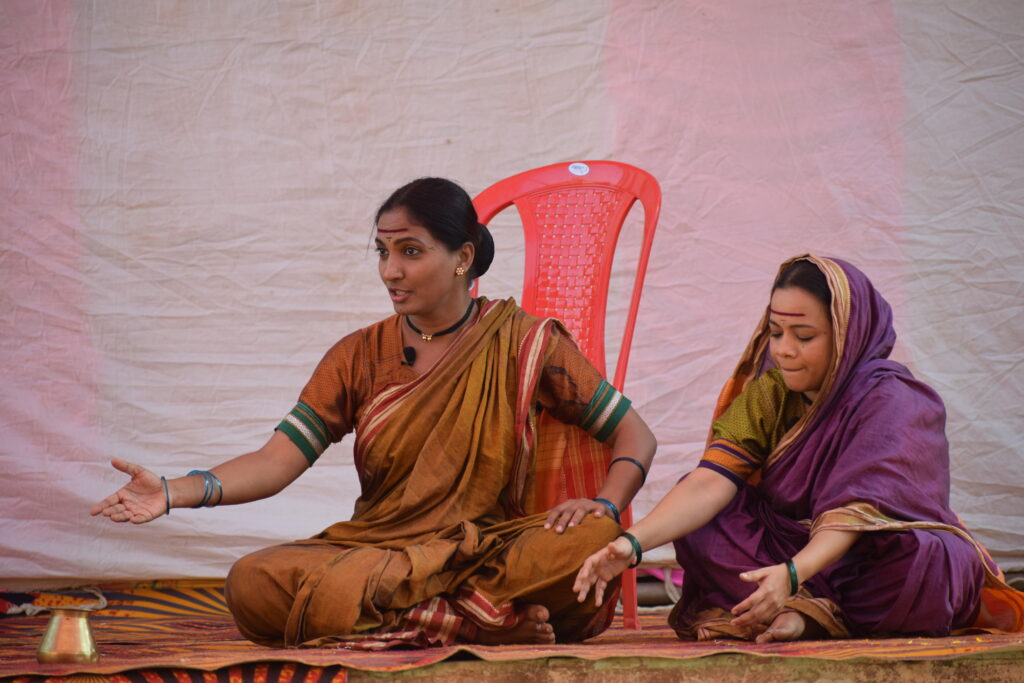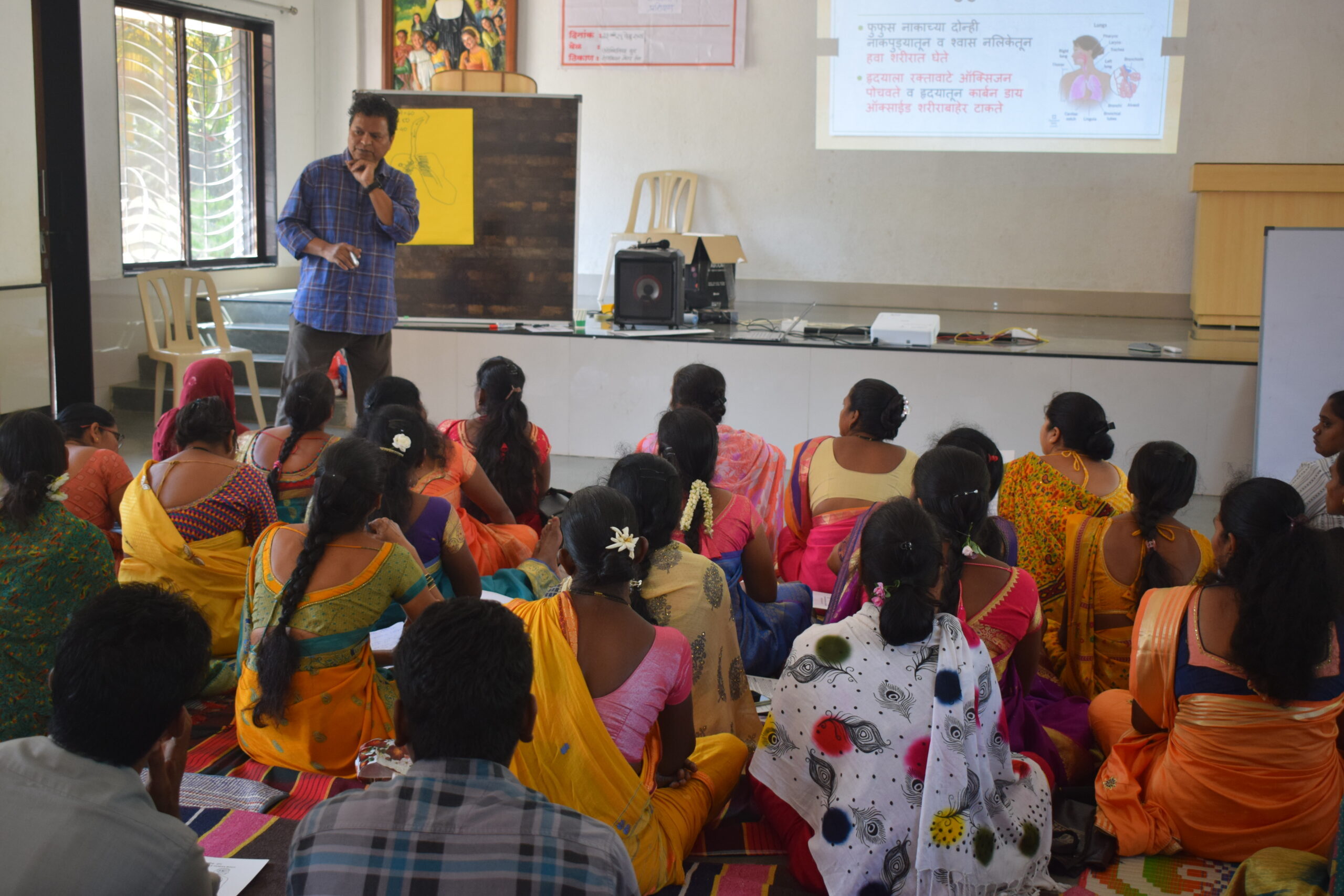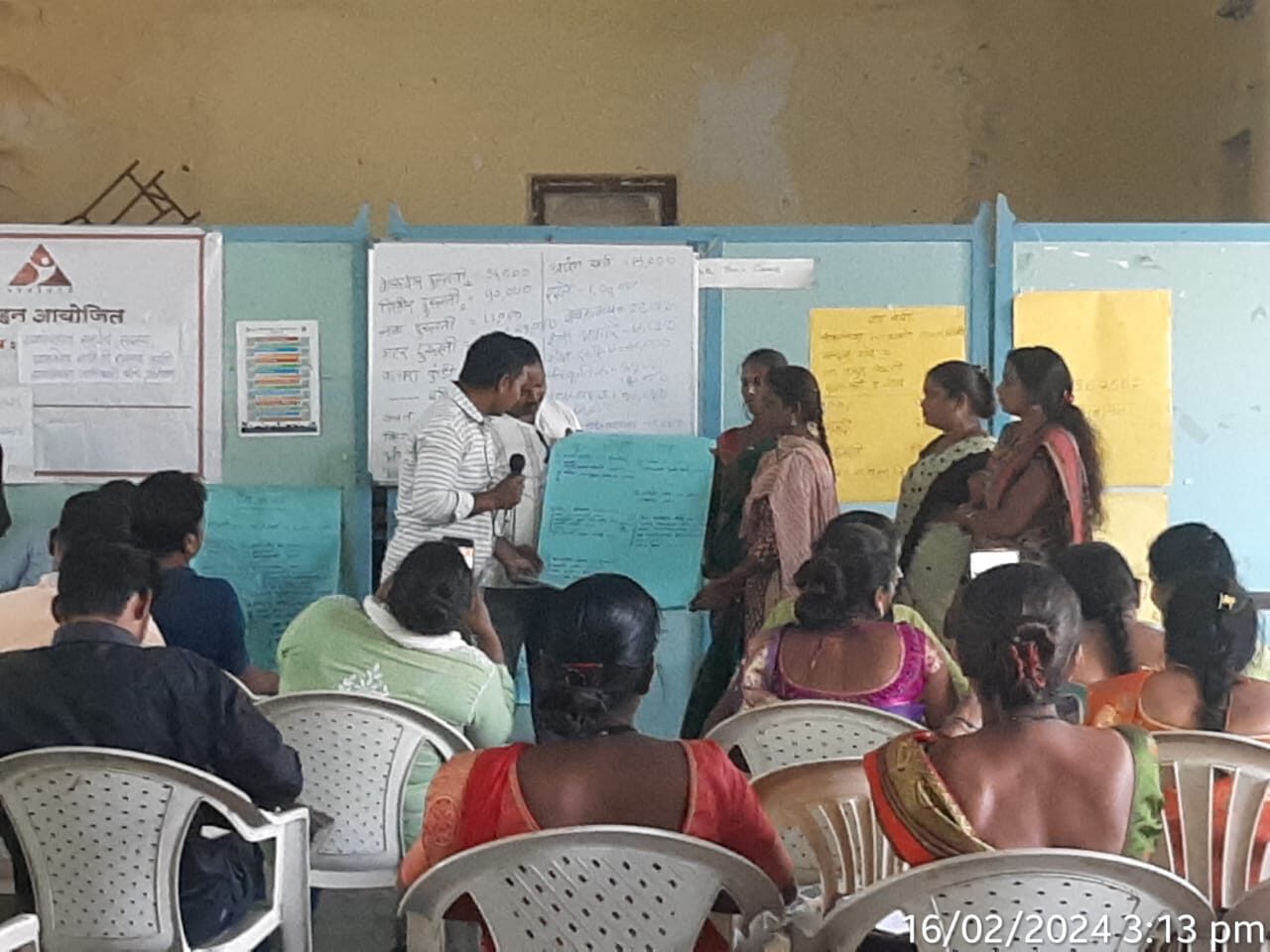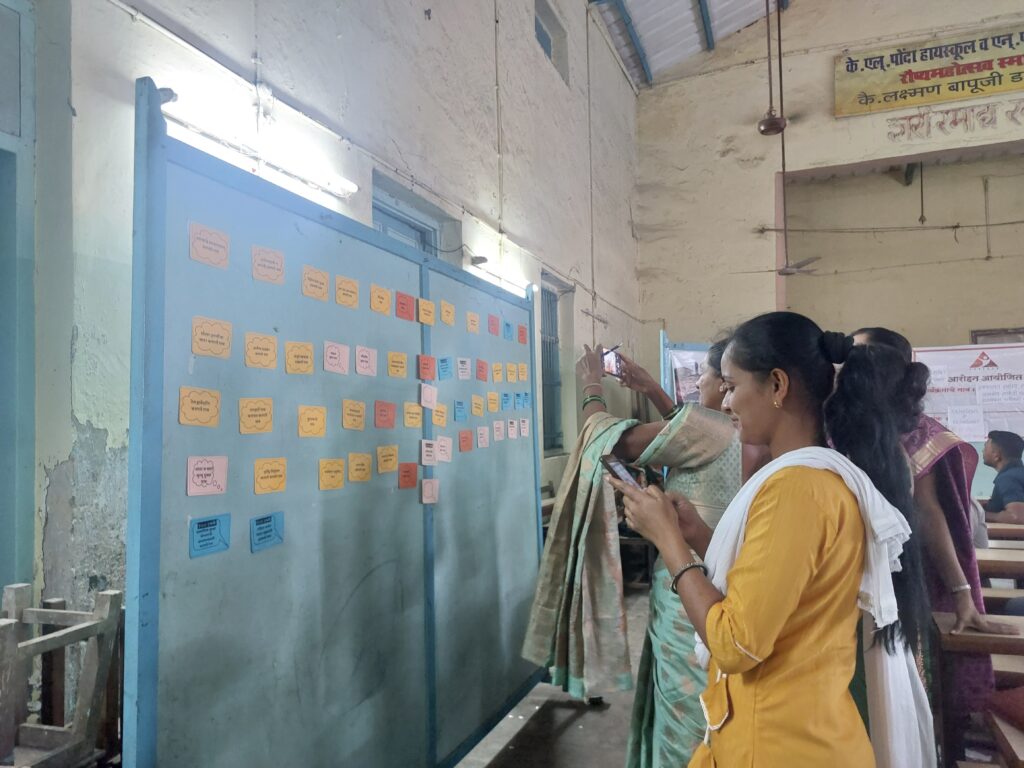Bal Anand Melava – A Happy Guide to Summer Fun
When we think of summer in childhood, we remember playing games, meeting friends, drinking refreshments, eating sour foods, listening to stories by elders, road trips and so on. Children in tribal areas do not always have luxury of vacation trips or summer camps during vacation. AROEHAN decided to bring summer fun to them through an initiative called Bal Anand Melava. 21 such camps were held from 15th April to 29th April, 2024 at Zilla Parishad Schools in Mokhada.

In Bal Melava, children were taught to make simple drinks on their own like lemon juice and Rasana. They made them and excitedly shared it with their friends. To ignite their creativity the participants were taught the art of origami and were guided through the process of creating intricate paper hats, boats, and planes. Old newspapers were used for these crafts and children were instructed to ensure zero waste to imbibe environmentally responsible behaviour. They were encouraged to perform local folklore and sing songs in front of their peers as a way to foster confidence. In an attempt to demonstrate the importance of sports in school, we organised a variety of enjoyable, classic activities to encourage physical activity and well-being.

Our Goals for summer camps were
- Preserving children’s enthusiasm for learning and integrating them into the educational system.
- To encourage children’s overall growth through additional extracurricular activities.
- To foster in kids self-assurance, self-reliance, aptitude, leadership, tolerance, and physical growth.
- To encourage children’s artistic abilities and provide them with educational motivation.
While the study break is important, recreational activities during this period are just as valuable and crucial in poverty-stricken areas to prevent children from being pushed into child labour and domestic work, as they lose touch with their learning capacities. 96 students, between 1st to 7th Grade, were a part of this initiative. The Bal Melava were held in 21 Zilla Parishads in Swaminagar, Bhowadi, Adoshi, Saprewadi, Sadakwadi, Dudhgaon, Dhamanshet, Vasind, Behtwadi, Pendakwadi, Bramhangaon, Bedukpada, Thakurwadi, Amle, Ikharichapada, Bhawaniwadi, Sakharwadi, Dolhara, Shelampada, Kakdoshi and many other places.



